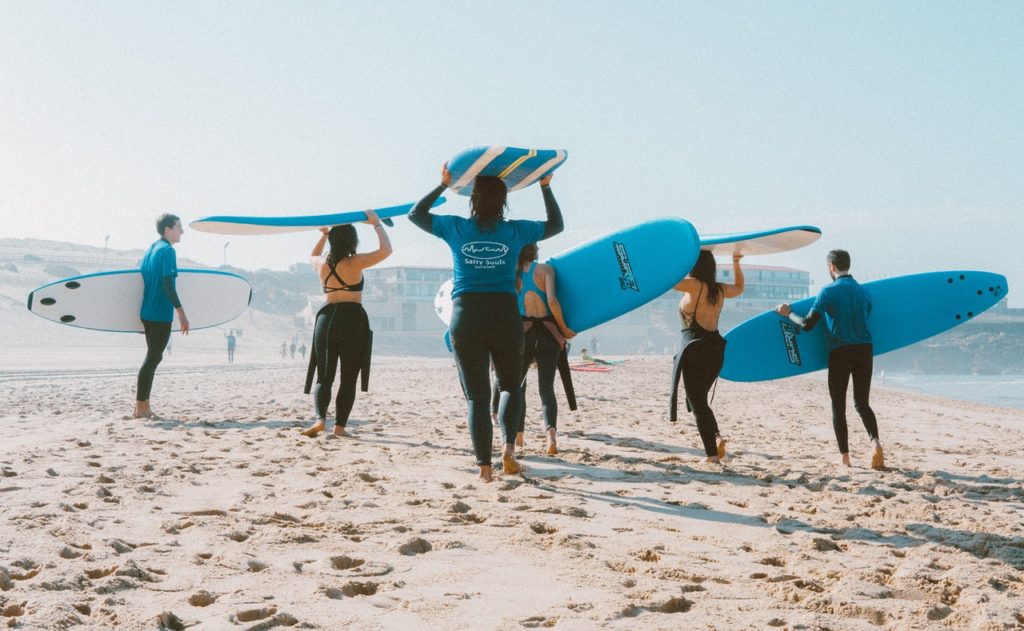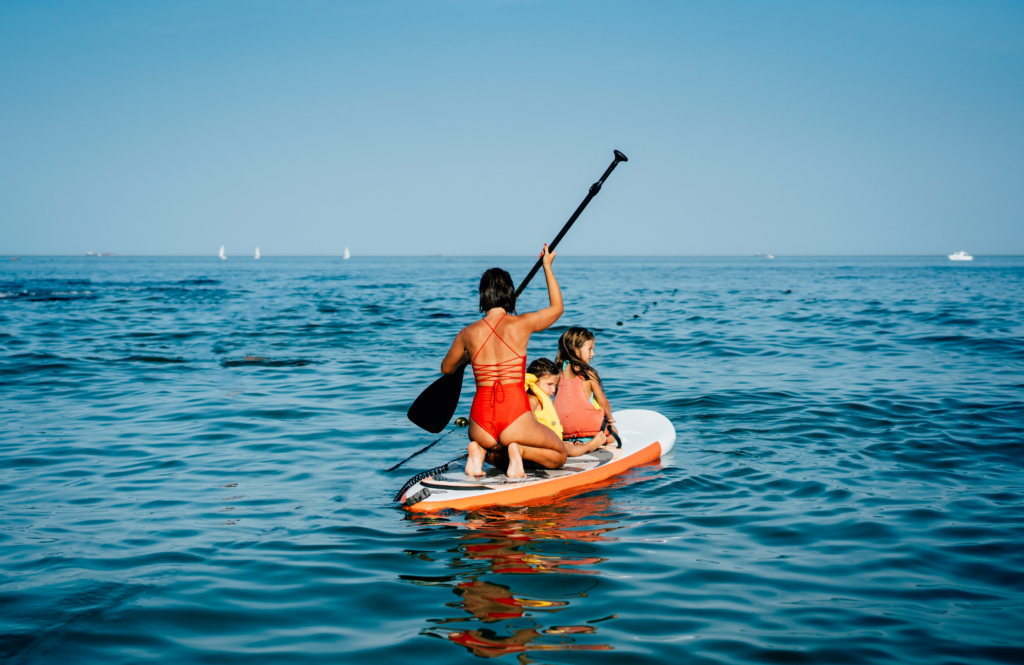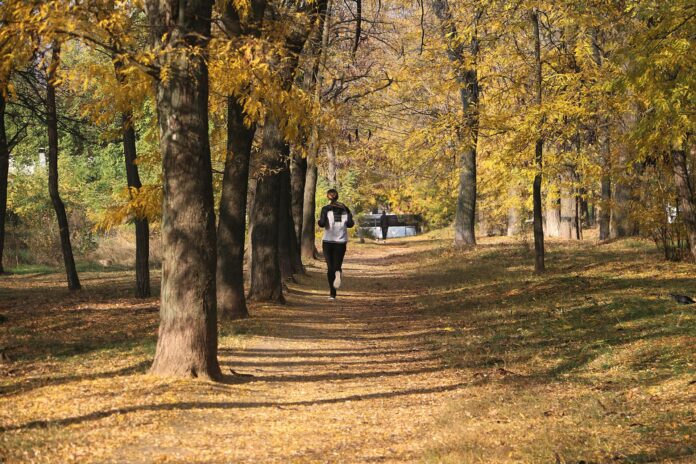With the four walls of home far too familiar these days, we think it’s fair to say that the pandemic has got us looking for new ways to enjoy the great outdoors.
Enter outdoor sports. However, with an increased uptake in outdoors sports comes increased rises in pollution and carbon footprint in tandem.
It’s no secret that since we’ve all been stuck at home, pollution levels have dropped and skies have felt clearer. Although the extent of a planet in bounce-back mode might have been exaggerated – dolphins have not been swimming in Venice’s canals, for instance – we can’t ignore the fact that the natural world felt like it was thriving without our heavy footprint.
We now have the opportunity to embark on our new lives with a sustainable mindset. This is all about being mindful of minimising your impact on the planet and reducing your waste in everything that you do. With this in mind, here’s how to make your favourite outdoor sports more environmentally friendly.
CASH AND RELEASE FISHING
Naming fishing as the opening example might raise some eyebrows. However, it’s an important place to start. Commercial fishing practices – the biggest cause of overfishing – are one of the major areas of eco-sustainability governments and authorities of all sizes are focused on, and those who enjoy fishing recreationally are no different. And yes, we’ve seen Seaspiracy.
There are ways to do things recreationally with a lighter touch, however. As the Government explains, “Catch and release (C&R) recreational angling has become a popular conservation strategy and management tool for an array of fish species and fisheries”, and as such, if you’re keen to continue your passion for fishing but ensure it’s as sustainable as possible, C&R could well be for you.
Indeed, catch and release fishing is the preferred practice for anglers or those wanting to fish who have environmental concerns, since it relies on returning the fish to water.
Anglers can enjoy the sport while also ensuring their favourite spots continue to be abundant with healthy fish. One of the key decisions and adjustments, aside from the technique of catching the fish themselves, surrounds the catch and release fishing hooks, and whether to use barbed or barbless hooks. Activists are trying to sway people towards the latter as it improves the chances of survival for the caught fish, which is the driving force behind the appeal of catch and release fishing, after all.
SURFING
While surfing gives people the chance to feel more attuned to the natural world, as the Guardian reports “surfers are creatures of convenience, lured by comfort and the prestige of brands into some environmentally dubious choices. Surfers burn vast amounts of petroleum in search of waves; cars, planes and even jetskis criss-crossing the globe in pursuit of an experience which, ironically, requires no propulsive fuel. Surfboards and wetsuits are among the most toxic of sporting goods, made predominantly out of that same petroleum.“
They go on to say that “Over generations, [surfers] have trashed the places [they] love. The brutal reality is that surfers, historically led by Australians, have degraded the island of Bali beyond recognition’’. They conclude that “Coastal development is perhaps the most visible mark that surfing leaves”.
That said, many surfers are committed to minimising their impact on the environment, like the good guys at Surfers against Sewage, who have made a name for themselves as eco-friendly wave lovers.
But how can you follow suit? Well, a good place to start is by picking eco friendly boards, wetsuits and surfing accessories – including sunscreen. Surfertoday suggests that “There are plenty of ways a surfer can increase the sustainability of their sport and reduce their impact on the water and beach environments they so frequently inhabit.”
These include engaging in beach cleanups and picking up rubbish, even if it isn’t yours. You could also take the initiative to organise a beach cleanup in your community.

PADDLEBOARDING
Here at IDEAL, we’re huge fans of stand-up paddle boarding (SUP), one of the most accessible water sports out there. Yep, all you need to find is a still body of water, access to a board and the enthusiasm for an adventure, and you’re good to go!
Moreover, there’s something magically meditative about being at one with nature and the water, standing tall and in control. What’s more, you get to enjoy the scenery from a whole new vantage point, bringing you closer to nature and far more in touch with the changing of the seasons and the movements of the great outdoors.
However, there’s no denying paddleboarding has negative effects on the environment. Think CO2 emissions when driving to and from the water, and the toxic waste from products created during board manufacturing.
As Men’s Journal explains, “Paddling is a relatively eco-friendly sport, but the traditional production of paddleboards is anything but environmentally responsible. Polyurethane resin, epoxy, fiberglass and foam…none of these components are easy for the world to digest”. They suggest When purchasing your next standup paddleboard, consider ecological impact along with performance and price to make a responsible decision.”
Go further, and prioritise sustainable travel products and more environmentally friendly modes of transport to offset your carbon footprint on the way to your chosen body of water. All these small changes make a huge difference to the planet.
Check out our article on 6 places to paddleboard in the UK; just don’t forget to carpool or even ride your bike to get to them!

ROCK CLIMBING
Rock climbing has received considerable pop-cultural attention in recent years due to highly successful documentaries, The Dawn Wall and Free Solo. This sport is an adrenaline-pumper, making it attractive for so many people keen to find natural highs, higher up.
It does, however, have an environmental impact, with vegetation, birds, and the rockface itself at risk of being impacted by climbers.
Authorities for nature areas which host rock climbing are encouraging enthusiasts to respect sites, protect wildlife, not to pull at branches or vegetation, dispose of waste, and not to put unnecessary amounts of screws into the rock.
This sounds like a lot of precautions to take, sure, but this extreme sport is all about challenging yourself, and can be performed in a satisfying and eco-friendly manner whilst still being an adventure. We’ll see you on the cliff face!





